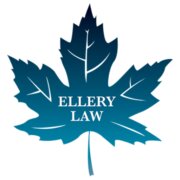Best Tax Increment Financing Lawyers in Timmins
Share your needs with us, get contacted by law firms.
Free. Takes 2 min.
List of the best lawyers in Timmins, Canada
About Tax Increment Financing Law in Timmins, Canada
Tax Increment Financing (TIF) in Timmins, Canada, is a public financing method used as a subsidy for redevelopment, infrastructure, and other community-improvement projects. TIF helps stimulate economic growth by leveraging future tax gains anticipated from increased property values. When the property values in a designated area increase, the additional tax revenue generated is used to finance infrastructure and other public projects within that area. TIF is particularly useful in Timmins for revamping underutilized or dilapidated areas, encouraging investment, and enhancing overall urban revitalization.
Why You May Need a Lawyer
While Tax Increment Financing can be beneficial, navigating the associated legal framework can be complex. You may require legal advice if you are a developer seeking to initiate a TIF project, a municipality looking to implement TIF districts, or a taxpayer concerned about the implications of TIF on local taxes. Legal assistance is also crucial when understanding land use regulations, negotiating agreements, and ensuring compliance with local laws is needed. An experienced lawyer can guide you through the legal intricacies, ensure regulatory adherence, and protect your interests in TIF projects.
Local Laws Overview
In Timmins, the implementation of Tax Increment Financing is governed by provincial legislation and local municipal policies. Key aspects include defining the scope and boundaries of TIF districts, determining eligible improvement projects, and understanding the financial implications for both municipalities and property owners. Local regulations also determine the approval process, including community consultations and the need for comprehensive planning. Understanding these laws is crucial for anyone involved with or affected by TIF initiatives.
Frequently Asked Questions
What is Tax Increment Financing?
Tax Increment Financing is a funding mechanism used to incentivize economic development and infrastructure improvements by using future property tax revenues generated from increased property values within a specific area.
How does TIF work in Timmins?
In Timmins, once a TIF district is established, any incremental tax revenue generated from increased property values in the district is used to fund public projects that benefit the designated area.
What types of projects can be funded through TIF?
In Timmins, TIF can fund various projects, including infrastructure improvements, public facilities, environmental remediation, and sometimes residential or commercial developments that encourage economic growth.
Who benefits from TIF?
Municipalities benefit from improved infrastructure and increased property values, while developers gain from the financial incentives provided. Residents may enjoy enhanced local services and a better quality of life due to improved amenities and economic activity.
Are there risks associated with TIF?
Yes, potential risks include unmet development expectations, changes in the economic climate affecting property values, and potential increases in public debt if not managed properly.
Can TIF be used for residential development?
Yes, TIF can be used for residential development if it aligns with the objectives of the designated TIF district and is approved under local policies.
How are TIF districts established?
TIF districts are established through a municipal approval process, which typically includes community consultations, planning studies, and the designation of specific boundaries and project goals.
What role does the community play in TIF projects?
The community is often involved through consultations and feedback during the planning phase to ensure that projects align with local needs and priorities.
How can someone oppose a TIF project?
Community members can express opposition during public consultations or by participating in municipal meetings where TIF projects are discussed and approved.
What happens when a TIF project is completed?
When a TIF project is completed, the increased property tax revenue from the enhanced property values within the district can continue to fund maintenance or be redirected to other municipal priorities.
Additional Resources
To gain more insight into Tax Increment Financing, consulting resources such as the Timmins municipal government, Ontario's Ministry of Municipal Affairs and Housing, and local development agencies can be beneficial. These organizations often provide guidelines, policy documents, and support with understanding TIF policies and procedures.
Next Steps
If you need legal assistance for a Tax Increment Financing matter in Timmins, consider reaching out to a legal professional specializing in municipal law or urban planning. Begin by researching experienced lawyers or firms, and prepare a list of questions and documents related to your TIF concerns. Initial consultations can provide clarity on your situation and help devise a strategic plan tailored to your needs and goals.
Lawzana helps you find the best lawyers and law firms in Timmins through a curated and pre-screened list of qualified legal professionals. Our platform offers rankings and detailed profiles of attorneys and law firms, allowing you to compare based on practice areas, including Tax Increment Financing, experience, and client feedback.
Each profile includes a description of the firm's areas of practice, client reviews, team members and partners, year of establishment, spoken languages, office locations, contact information, social media presence, and any published articles or resources. Most firms on our platform speak English and are experienced in both local and international legal matters.
Get a quote from top-rated law firms in Timmins, Canada — quickly, securely, and without unnecessary hassle.
Disclaimer:
The information provided on this page is for general informational purposes only and does not constitute legal advice. While we strive to ensure the accuracy and relevance of the content, legal information may change over time, and interpretations of the law can vary. You should always consult with a qualified legal professional for advice specific to your situation.
We disclaim all liability for actions taken or not taken based on the content of this page. If you believe any information is incorrect or outdated, please contact us, and we will review and update it where appropriate.









